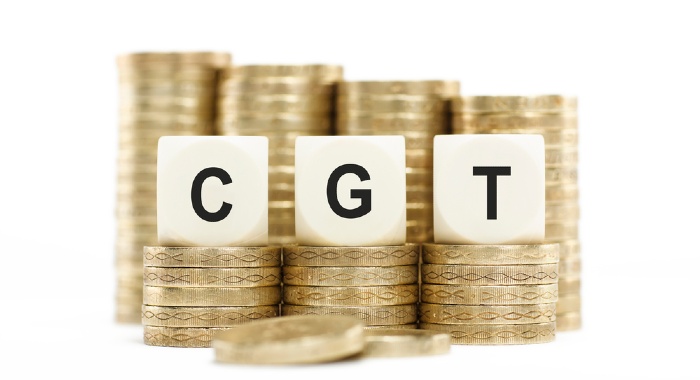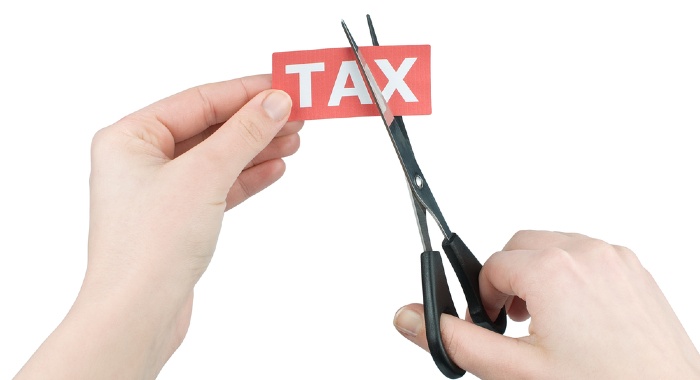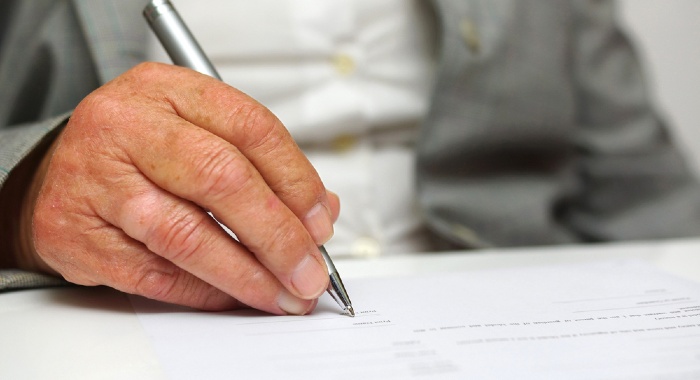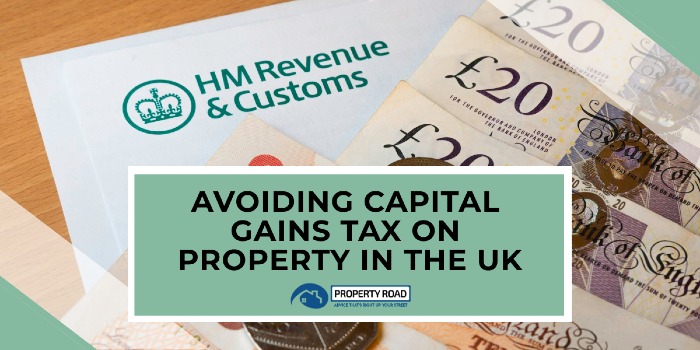Everyone will be liable for a capital gains tax bill should they make a profit – or gain – when selling a property or second home.
When selling your main home, you will not normally need to pay capital gains tax (CGT), but this may not be the case if you sell a second home or a buy to let property.
If you have been using the property that you sell as a business, or if you lease part of it out, then you may be facing a CGT bill.
How much is CGT on property?
A basic rate taxpayer in the UK facing a capital gains tax bill will be paying 18% of the profits or gains made when the property is sold.
For higher or additional rate taxpayers, their tax rate is 28%.
For other assets, your CGT basic rate is 10%, while the higher rate is 20%.
One of the downsides for calculating your capital gains bill is when you determine your tax status for the current financial year because any gains you declare may then be pushed into a higher tax bracket.
However, you have a CGT annual allowance of up to £12,300 for the 2020-21 tax year, and this is a ‘use it or lose it’ allowance.
This means that you can earn an amount tax-free under the rules, and a couple who own as asset can combine each of their threshold amounts, so they have a CGT tax-free threshold of £24,600.
If you don’t claim in the current year, the amount cannot be carried forward.
How much capital gains tax will I need to pay?

It’s important to appreciate that capital gains tax will only be levied on the profit or gain you make when selling a second home or a buy to let property.
The CGT is not levied on how much your property is sold for.
Essentially, to calculate what your profit is, you need to deduct how much the property cost from its sale price. Then, you can deduct:
- The costs incurred with the selling and buying of the property – including stamp duty;
- Brokers’ fees;
- The cost of property improvements while you lived there.
For those with more than one asset, you can offset any losses incurred when selling an asset and these losses can be carried forward.
For example, should you own a property portfolio that makes, for example, a £50,000 loss when selling a property, then this will increase your tax-free proportion when you sell another property.
You are then able to claim any losses when selling a property by using your own self-assessment tax return. Alternatively, you can call HMRC.
Any losses can be claimed up to four years after being incurred.
It’s important to appreciate that for taxable profit above your tax-free threshold in 2020-21 of £12,200, then you need to pay CGT.
Our Favourite Books On Property Investing:
When is my capital gains tax bill due?
When you sell a property, you will need to report the disposal by the next self-assessment tax deadline – and the amount of tax you owe.
This means that the deadline will be on 13 January following the year of the sale.
However, if you make a taxable profit from selling a residential UK property, then you need to pay this tax within the next 30 days after the sale’s completion or disposal.
You can complete the ‘residential property return’, and then pay the tax ‘on account’.
It might be worth discussing this issue with a solicitor or accountant.
What CGT reductions can I make?

As mentioned, when it comes to avoiding capital gains tax on property in the UK, you can lower your CGT tax bill within the rules.
Indeed, there are some costs that you incur when you sell and buy a property that you are allowed to deduct from your final CGT bill. The costs will include:
- Estate agents’ and solicitors’ fees;
- The stamp duty paid when buying your property;
- Any costs incurred while improving the residence, for example, a property extension.
You cannot claim a CGT deduction for:
- Costs incurred to maintain a property;
- Mortgage interest.
The CGT bill for your main home
We have made it clear that a capital gains tax bill may be incurred when you sell a buy to let property or a second home.
However, in some circumstances you may have to pay capital gains tax on your main home.
Usually, you will be entitled to what is known as ‘private residence relief’, so you will not be liable for CGT when you sell your home.
For the tax year of 2020-21, you will not need to pay CGT for the time the property was your main residence, plus nine months of ownership – even if you did not live in that property during that time.
And for those who have a disability, or who have been moved into a care home, they can claim up to 36 months of ownership.
To explain this further, you may be liable for capital gains tax bill on your main home if you:
- Have developed your home by converting rooms into flats, for example;
- Sell some of the garden – if it is more than 1.2 acres;
- Used part of the property for exclusive business use;
- Have let part or all of your home (this does not include having just one lodger and you have lived there too);
- If you moved out of your main home at least nine months ago and into a partner’s home;
- Have bought a property with a view to renovating it and then selling it on.
How does HMRC determine which is my main home?

Should you own more than one home, then you are allowed to nominate which of these will be your main residence for tax purposes.
This does not mean that the property is where you necessarily spend most of your time.
However, it makes sense for you to nominate a property that will make the largest profit when you sell it.
You will need to declare your main home within two years of buying a new home.
Also, civil partners and married couples can only nominate one main home between them, but an unmarried couple can nominate a different home each.
CGT and buy to lets
Should you let all or part of your home, then a proportion of any profit or gain when you come to sell it may then be taxable.
However, if you previously lived in the property then you may be able to claim some lettings relief, and this will lower your CGT bill.
Just as a word of warning: lettings relief will not apply to those investors who have let a property without having lived in it.
The lettings relief that you can claim would be the lowest of either:
- The private residence relief you can claim – or £40,000;
- The gain that was received from the property’s letting proportion.
Also, you cannot claim lettings relief and private residence relief for the same period.
There are strict rules on how letting relief works, and the situation can become confusing, so professional financial advice is the best course of action.
CGT on inherited and gifted homes

If a relative or a parent has left you their home in their will, then you will inherit their property at its market value. This value is determined at the time of the benefactor’s death.
And while there is no capital gains tax payable, you need to appreciate that the property’s value will be included in the benefactor’s estate – this is defined as being all of their property and assets minus any funeral expenses and debts.
So, while the property will not attract capital gains tax, you may find that you have to pay inheritance tax instead.
Also, should you then sell the property and have not made it your own home, then you could be liable for capital gains tax when you do so.
The amount of CGT will be calculated on the property’s increase in value between the date of the benefactor’s death, and the day it was sold – minus any selling costs.
It’s also worth understanding the term: ‘A gift with reservation’. This is a home you are given during the benefactor’s lifetime and while they are still living there.
This will still count for inheritance tax purposes when the person who gifted the property passes.
Again, you may need to pay CGT when the home is sold eventually.
Avoiding capital gains tax on property in the UK
Essentially, when it comes to avoiding capital gains tax on property in the UK, you need to appreciate that the rules are very clear. There is no way of avoiding CGT without breaking the law.
As mentioned previously, it is always worth seeking professional financial advice but using your CGT allowance and understanding the rules will go some way to mitigating any capital gains tax bill you are liable for.
More information
This article should not be seen as offering financial advice and you should always seek professional financial advice if you want to avoid a capital gains tax bill. The government also has lots of useful CGT information on their capital gains website.







